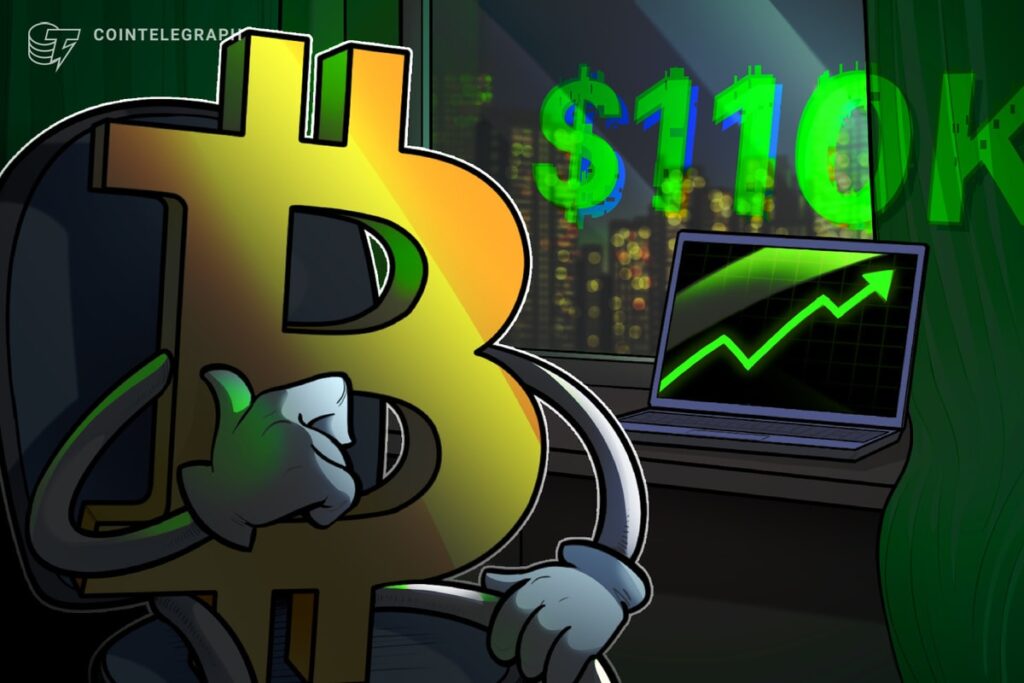Key takeaway:
Bitcoin (BTC) rose 3.5% between June 7 and June 9, approaching the $108,500 mark. Despite this recent uptick, professional traders remain notably cautious, as reflected in BTC derivatives metrics. Broader macroeconomic tensions persist, and Bitcoin continues to show a strong correlation with the stock market, limiting its short-term upside potential.
Some analysts anticipate Bitcoin could rally to $150,000 as the US government nears a $4 trillion increase to its debt ceiling. However, futures market data suggests short-term hesitance, likely driven by unfavorable macroeconomic signals and a misreading of Bitcoin’s potential supply shock.
Since June 6, Bitcoin futures premiums have hovered near the 5% baseline typical of neutral markets. The recent price increase has yet to inspire significant confidence among traders. Still, it would be inaccurate to say sentiment is entirely pessimistic, especially with Bitcoin currently trading just 3% below its $111,965 all-time high set on May 22.
The recent price movement was not driven by excessive leveraged speculation, an indicator of a healthy market foundation. However, if recession fears persist, Bitcoin is unlikely to maintain levels above $110,000, given its continued correlation with traditional equity markets.
At present, Bitcoin’s correlation with the S&P 500 stands at 82%, meaning the two assets have moved in similar directions. This trend has held for the past four weeks. Although the correlation has fluctuated over the past nine months, investors largely still treat Bitcoin as a risk-on asset rather than a reliable hedge.
Bitcoin could struggle against broader economic headwinds
Investors’ concerns have been reinforced by previous instances when the US trade war intensified, negatively affecting nearly every asset class, including equities, oil, and Bitcoin. Still, Bitcoin was designed precisely for periods of financial uncertainty. If confidence in the US government’s fiscal stability deteriorates, risk perceptions could shift in Bitcoin’s favor.
The Bitcoin long-to-short margin ratio at OKX shows longs outweighing shorts by 4 times. Historically, excessive confidence has pushed this ratio above 20 times, while levels below 5 times favoring longs are seen as bearish.
However, none of these indicators suggest that large investors or market makers are preparing for a Bitcoin price crash.
Related: Strategy adds 1,045 Bitcoin for $110M in latest purchase
If investor confidence in the US Treasury’s ability to manage mounting debt continues to weaken, there’s potential for capital to exit government bonds. Unlike the S&P 500, which holds a $50 trillion valuation, or gold at $22.5 trillion, Bitcoin could surge past $150,000 even by capturing a small share of these outflows.
In the short term, as long as the US dollar remains the world’s reserve currency, Bitcoin’s price remains vulnerable to downward pressure, particularly if a recession is confirmed. Consequently, the prevailing concerns about the global trade war and the lingering impact of high interest rates are likely to cap Bitcoin’s near-term upside.
This article is for general information purposes and is not intended to be and should not be taken as legal or investment advice. The views, thoughts, and opinions expressed here are the author’s alone and do not necessarily reflect or represent the views and opinions of Cointelegraph.
#Bitcoin #price #alltime #high #hindered #macroeconomic #fears

